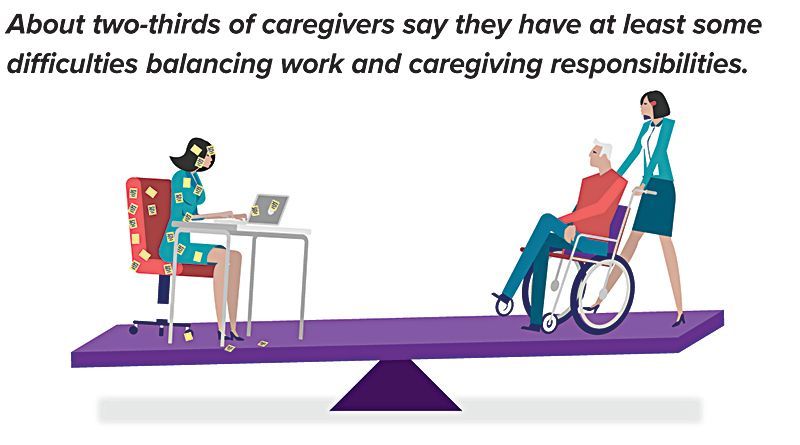Balancing Life in the Sandwich Generation
Are you a middle-aged adult juggling raising children and providing care for an aging parent?
If so, you're not alone. Welcome to the "sandwich generation," a growing group of people supporting both their children and elderly parents at the same time.
While caring for others can be rewarding, the day-to-day demands of supporting multiple generations can take a financial, emotional, and physical toll on sandwiched caregivers. But with some planning and support, you might be able to achieve a workable balance.
Communicate and set boundaries
Start by opening the lines of communication with both your kids and your parents in order to set expectations and limitations. If you have younger children, you may need to explain to them why you need to divide your time and attention between them and your parents. To help them feel included, look for ways to involve them in less difficult caregiving activities, such as visiting with their grandparents or helping out with household chores. You'll also want to try to build time into your schedule to do some of the activities that they enjoy.
When talking to your parents, having an upfront and honest discussion about their day-to-day support needs and your ability to meet them can prevent misunderstandings down the road. When the time comes, you may need to discuss more sensitive topics such as the possibility of them having to move to an assisted-living facility, a nursing home, or dedicated space in your home.
If you have siblings or other family members willing to help, set up regular family meetings to discuss how you can all share in the financial, emotional, and time commitments of caregiving.
Leverage community resources
It's important to realize that you don't have to carry the burden of caregiving alone. Contact your local senior center, which can provide information on meal delivery services, transportation assistance, adult day programs, and even respite care.
If your parents' needs are great enough, you might consider hiring a geriatric care manager who can develop a personalized care plan for them. They can also make recommendations for and help coordinate services, housing, and support.
If you need child care, explore your local child care resources and referral agencies to help you find licensed child care providers. Contact your children's school and/or local parks and recreation departments to see if they offer sports leagues, before and after school programs, and/or summer camps.
Prioritize self-care
Putting your own needs first will allow you to be in a better frame of mind to care for those around you. Try to set aside time to rest and recharge your batteries. Even small daily rituals — a walk, exercise class, or meditation — can provide much-needed relief.
Your physical and mental health should also be a priority. Stay on top of your own medical appointments and don't hesitate to seek out counseling if the demands of caregiving become too great.
Explore flexible or remote work arrangements
Nearly 48 million Americans provide care to an adult family member or friend and 61% also have jobs.1 Talk to your employer about the possibility of flexible or remote work arrangements. Being transparent with your employer about your caregiving responsibilities can help build understanding and possibly lead to creative work solutions that can help alleviate some of the pressures of working while caregiving.
In addition, research the family medical leave options available to you. While the Family and Medical Leave Act (FMLA) provides some protections, your state or company may offer additional benefits.
The Struggle of Working While Caregiving

Stay on track with your finances
When you are busy taking care of others, it is easy to fall behind financially. In addition to being responsible for your children's financial needs, you may also find yourself shouldering some of your parents' financial responsibilities. You may even have to take a step back from work or turn down a job or promotion due to caregiving demands. Nevertheless, it's important to stay on track with your own finances. This includes sticking to your budget, paying off debt, maintaining an emergency fund, and continuing to invest towards your retirement.
(1) AARP and S&P Global, May 2024
All Securities Through Money Concepts Capital Corp., Member FINRA / SIPC
11440 North Jog Road, Palm Beach Gardens, FL 33418 Phone: 561.472.2000
Copyright 2010 Money Concepts International Inc.
Investments are not FDIC or NCUA Insured
May Lose Value - No Bank or Credit Union Guarantee
This communication is strictly intended for individuals residing in the state(s) of MI. No offers may be made or accepted from any resident outside the specific states referenced.
Prepared by Broadridge Advisor Solutions Copyright 2020.












